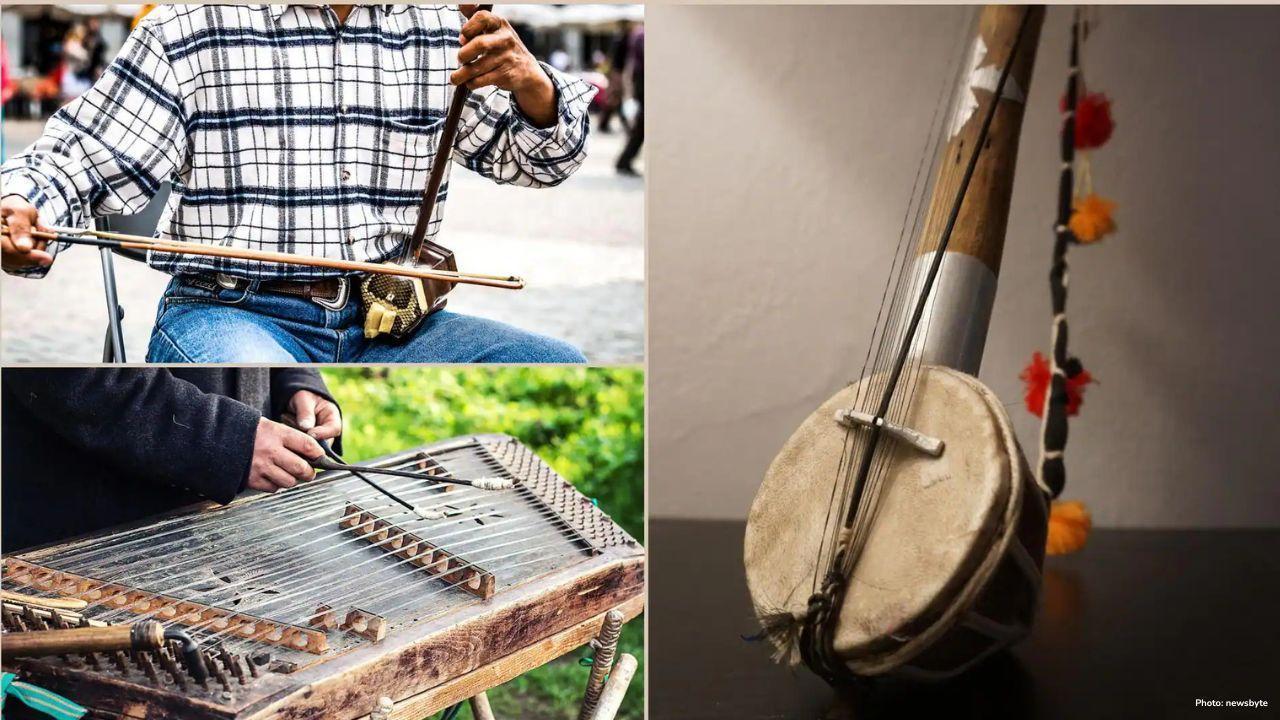You have not yet added any article to your bookmarks!

Join 10k+ people to get notified about new posts, news and tips.
Do not worry we don't spam!

Post by : Saif Rahman
Music has always played a crucial role in human civilization. From joyful celebrations to solemn ceremonies, it unites individuals in profound ways. Traditional musical instruments are vital components of this legacy, embodying the culture, history, and inventive spirit of societies worldwide.
Defining Traditional Musical Instruments
Traditional musical instruments are unique tools that have been cherished in specific cultures for generations. Often crafted from natural materials like wood, metal, animal skins, or strings, these instruments are deeply intertwined with the customs and heritage of their communities, contrasting with modern instruments.
Renowned Traditional Instruments Globally
Sitar (India): A string instrument known for its distinctive sound, commonly featured in classical Indian music.
Djembe (West Africa): A hand drum integral to ceremonies and celebrations.
Shamisen (Japan): A three-stringed musical instrument central to traditional Japanese music and theatre.
Bagpipes (Scotland): A wind instrument crafted from pipes and a bag, often heard during Scottish festivities.
Didgeridoo (Australia): A long wooden wind instrument played by Aboriginal Australians.
Erhu (China): A two-stringed bowed instrument, affectionately known as the Chinese violin.
The Significance of Traditional Instruments
These instruments transcend mere musical functions; they forge connections to culture and history. They serve as vessels for narratives, beliefs, and traditions, creating continuity across generations.
Artisanal Craftsmanship
Many traditional instruments showcase the talent of skilled artisans, each crafted uniquely. The processes involved frequently include age-old techniques passed through generations, enriching the value and character of each instrument.
Balancing Modernity with Tradition
In contemporary society, there remains a vibrant appreciation for traditional instruments. Musicians often fuse these timeless tools with modern genres, generating innovative soundscapes. Furthermore, workshops and festivals organized by governments, cultural bodies, and schools aim to educate younger generations on playing these unique instruments.
The Role of Music in Community Life
Traditional musical instruments often enhance festivals, weddings, religious observances, and local events, fostering unity and a sense of belonging. For many cultures, musicianship symbolizes skill and reverence.
Traditional musical instruments are celebrated for their melodious sounds, craftsmanship, and cultural significance. They serve not only as instruments but as vital links to our history, culture, and communities. Globally, these instruments continue to be cherished, ensuring that their musical heritage lives on for future generations.










Study Warns Using AI for Medical Advice Is ‘Dangerous’ as Users Get Inaccurate Health Guidance
A major new study reveals that artificial intelligence (AI) chatbots and tools may give misleading o

Top Sci-Fi Movies Streaming on Netflix This February: Must-Watch Picks for Genre Fans
A curated news-style guide to the best science fiction films currently available on Netflix in Febru

BCCI Central Contracts Shake-Up: Kohli, Rohit Moved to Grade B as Board Reshapes 2025–26 List
Virat Kohli and Rohit Sharma have been placed in Grade B in the BCCI’s 2025–26 central contract list

Dalal Street Spotlight: Top 10 Stocks Investors Are Watching as Markets Open on a High
Indian stock markets begin the week with strong momentum, and several blue-chip and mid-cap stocks a

Market Movers Today: Key Stocks Set To Watch In Indian Markets
Indian equity markets are poised for active trading as several major companies, including Bharti Air

Milan Welcomes the World: Inside the Grand Opening Ceremony of the 2026 Winter Olympics
The 2026 Winter Olympics opening ceremony in Milan marked a defining moment for global sport, blendi